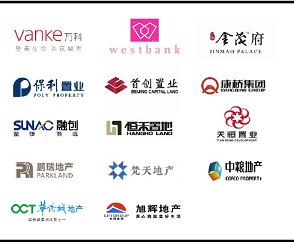持久的建筑革新 ——HPP深圳公司成立
《中国城市发展潜力排名:2019》研究报告中对全国除三沙市和港澳台外的336个地级及以上行政单元的发展潜力进行客观排名,深圳、北京、上海、广州、成都、南京、武汉、重庆、天津、杭州位居前十。其中深圳位居十大最具发展潜力城市榜首,从仰视香港的小渔村已经发展到引领全国创新创意的大都市,深圳未来将携手珠三角各城市参与全球分工与合作,打造全球创新创意之都。
The “China Potential City Development Ranking: 2019” objectively reported the top 10-ranked potential city development in Mainland China, like the following lists, Shenzhen, Beijing, Shanghai, Guangzhou, Chengdu, Nanjing, Wuhan. Chongqing, Tianjin and Hangzhou. Among those cities, Shenzhen is ranked number one. As tracing the Shenzhen's history from a small fishing village near Hong Kong to the present leading city with innovative power, in the future, Shenzhen is ready to cooperate with the cities in the Pearl River Delta and participate in the global division and cooperation to become a global creative capital.

▲ 深圳北站汇德大厦,预计2019年底建成 ©曾天培
▲ Shenzhen North Station Huide Tower will be completed later of 2019 ©Zeng Tianpei
1933年, Helmut Hentrich 先生创立了德国HPP建筑事务所。1997年起,HPP以国家大剧院等项目为契机初探中国市场,2006年因上海世博村、上海汉高亚太总部及技术中心等项目正式在上海建立分部,为HPP全面进入中国市场奠定了基础,2017年HPP北京公司正式成立。如今HPP在中国已经茁壮成长,随着近年业务的不断扩展,以便更好的服务于深圳及周边地区的客户与项目,HPP深圳公司应运而生。目前深圳在建项目有:深圳北站汇德大厦、深圳南山科技创新中心、深圳前海控股大厦室内设计等。
In 1933, Helmut Hentrich founded HPP architecture office in Germany. Since 1997, HPP began to explore the Chinese market with the project of National Grand Theater in China. HPP gradually deepen the local understanding while completing the projects of Shanghai Expo Village,Henkel Asia-Pacific Headquarters (Zhangjiang, Shanghai). In 2006, a branch was established in Shanghai, which laid the foundation for HPP to enter the Chinese market. HPP Beijing officially established in 2017. With the expansion of its business in recent years, HPP decided to set up the Shenzhen office to better serve Shenzhen and the surrounding areas. At present, there are several projects under construction in Shenzhen, such as Shenzhen North Station Huide Tower, Shenzhen Nanshan Science & Technology Innovation Center, Shenzhen Qianhai Investment Holding Tower Interior Design and so on.
9月20日,HPP深圳公司成立酒会在深圳前海壹会成功举行。HPP总裁及高级合伙人Joachim H. Faust、执行董事及高级合伙人Gerhard G. Feldmeyer、高级合伙人Werner Sübai、高级合伙人Burkhard Junker、财务总监Berger-Koch Claudia女士、合伙人Jens Kump、合伙人余炜及公司部分员工代表出席酒会,并邀请客户及合作伙伴共同见证了HPP深圳公司的成立。
On September 20th, the opening ceremony of the HPP Shenzhen office was successfully held in Shenzhen ONES. Joachim H. Faust (HPP chairman / Senior Partner), Gerhard G. Feldmeyer (Managing Director / Senior Partner), Werner Sübai (Senior Partner), Burkhard Junker (Senior Partner), Berger-Koch Claudia (Chief Financial Officer), Jens Kump (Partner), Yu Wei (Partner) and some HPP architects attended this grand event. More than that, HPP clients and cooperation partners were invited to celebrate the opening of the HPP Shenzhen Office.
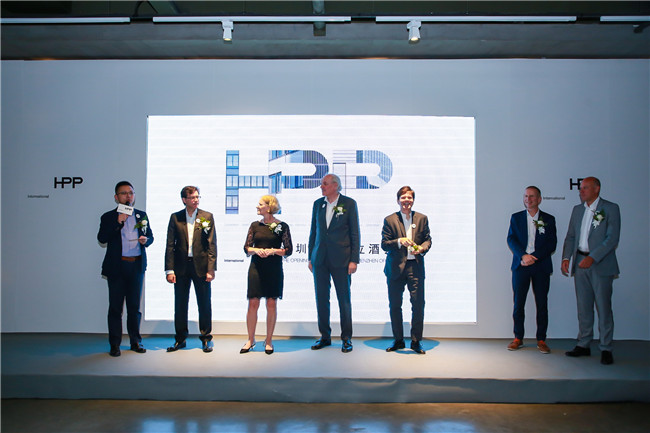
▲ 从左至右分别为HPP合伙人余炜、合伙人Jens Kump、财务总监Berger-Koch Claudia女士、总裁及高级合伙人Joachim H. Faust、执行董事及高级合伙人Gerhard G. Feldmeyer、高级合伙人Werner Sübai、高级合伙人Burkhard Junker
▲ From left to right: Yu Wei (HPP Partner), Jens Kump (Partner), Berger-Koch Claudia (Chief Financial Officer), Joachim H. Faust (Chairman / Senior Partner), Gerhard G. Feldmeyer (Managing Director / Senior Partner), Werner Sübai (Senior Partner), Burkhard Junker (Senior Partner)
活动全程由HPP合伙人余炜担任主持,酒会上半场分享HPP的建筑价值观及中国项目实践主旨演讲。下半场则邀请了HPP高级合伙人Werner Sübai、深圳大学建筑与城市规划学院副院长齐奕博士、CTBUH副理事长及中国区总监杜鹏博士、深圳市建筑设计研究总院副院长杨旭作为嘉宾,围绕建筑价值的四个关键词进行多维度解读,HPP联合合伙人担任专题讨论主持人。
The opening ceremony was hosted by Yu Wei (HPP partner). Joachim H. Faust (HPP chairman / Senior Partner) and Jens Kump (HPP partner) presented keynote speeches of values in architecture and practice on Chinese projects at the beginning of the ceremony. Then, Werner Sübai (HPP Partner), Dr. Qi Yi (Vice Dean of College of Architecture and Urban Planning, Shenzhen University), Dr. Du Peng (CTBUH Vice-president / Director of Greater China), Yang Xu (Vice President of Shenzhen Architectural Design Institute) were invited as guests to share their viewpoints of four keywords in a multidimensional way. Gan Yuanzhe (HPP associate partner) acted as moderators of the panel discussion.
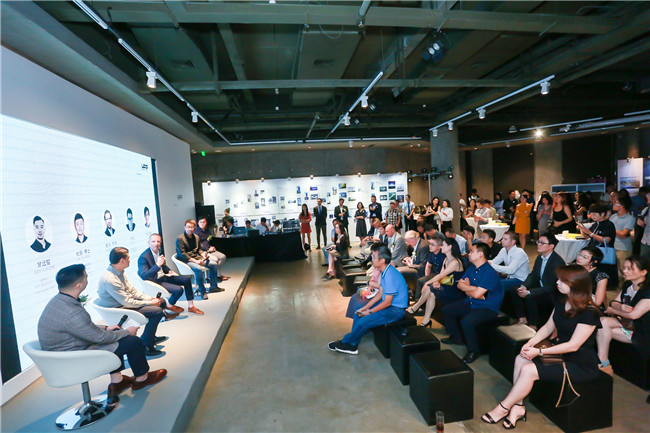
▲ 专题讨论现场
▲ Panel Discussion
建筑价值观
Values in Architecture
HPP总裁及高级合伙人Joachim H. Faust通过“传承”、“创新”、“细节的品质”、“标识性”、“环境意识”和“合伙人”等关键词讲述了在HPP八十六年发展过程中所坚持的价值观以及如何将其在项目中进行实践。
Joachim H. Faust (HPP chairman / Senior Partner) followed the keywords: Heritage, Innovation, Quality Details, Identity, Environmental Consciousness and Partnership to present HPP 86-year values during the developing process and how to make those values into practice.
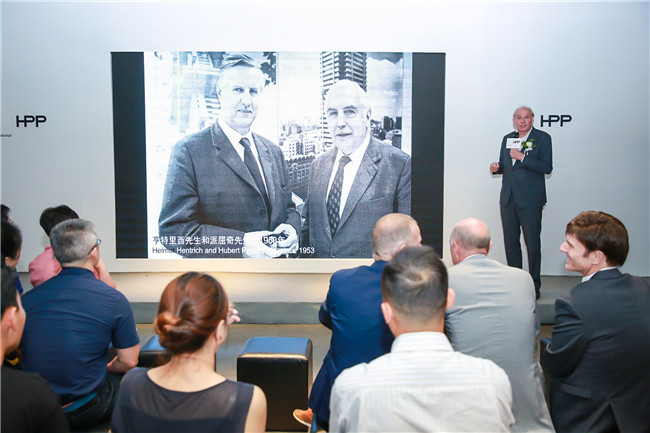
▲ HPP总裁及高级合伙人Joachim H. Faust 发表演讲
▲ Joachim H. Faust (HPP chairman / Senior Partner)
在长期实践过程中,HPP尊重历史并且鼓励创新,努力在项目中创造新的机遇,如位于明斯特的水晶大楼曾多次进行翻新工作,HPP通过统一的设计语言将新老建筑结合,在现代的基础上平衡功能与标识性,使整座建筑都极富表现力。
In the long-term practice, HPP pays respect to our Heritage and is open for Innovation developing new chances. For example, LVM5 Crystal, Münster has been refurbished several times. HPP made this building expressive with unifying design dialogue between old and new, and following balance functional and poetic Identity on the basis of modernity.
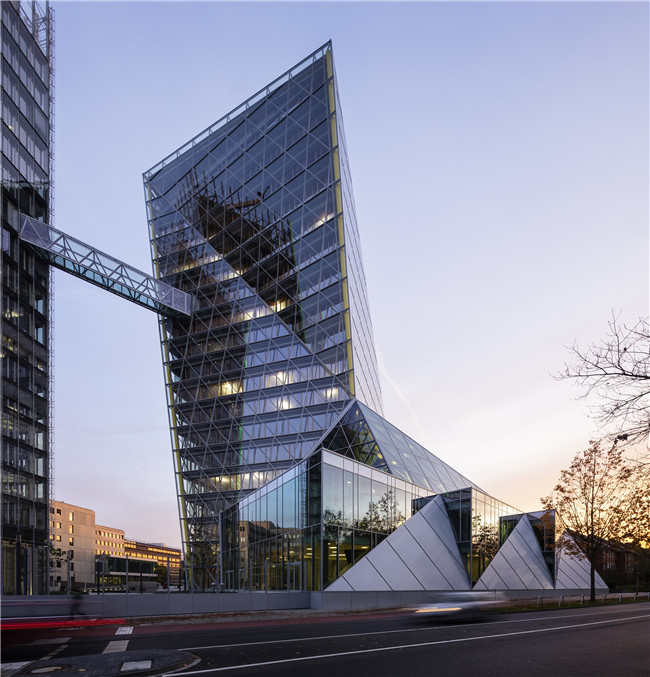
▲ 水晶大楼 —— LVM5保险公司总部办公楼
▲ LVM5 Crystal, Münster
而在杜塞尔多夫的纸牌屋——媒体港办公楼设计中,HPP秉承着对保护全球资源和对环境负责的理念,设计了杜塞尔多夫的第一座混合木结构办公楼,从材料选择、施工经济、使用要求等各方面遵循经济循环的设计原则,注重细节安全及美观的同时保证对环境的友好。
In the design process of The Cradle - Office Building in Medianafen, Düsseldorf, HPP is responsible for our global environment to design the first office building of the mixed wooden structure in Düsseldorf. From material selection, construction economy, and requirements in use, HPP keeps following the design principles of Circular Economic, paying attention to quality details in safety and aesthetics while ensuring the environment-friendly.
▲ 经济循环在“纸牌屋”项目中的实践
▲ HPP follows the principles of circular economy in Cradle - Office Building in Medianafen, Düsseldorf
持久的建筑革新
Lasting of Architecture Innovation
HPP合伙人Jens Kump提到目前建筑设计正面临着改革,以HPP在中国的部分项目为案例,表示设计现如今不只是为业主服务,同时也承担着传承城市精神面貌,为城市发展提供方向引导等多方面功能,而HPP也正通过设计的力量为城市发展提供着可持续的创新。
Jens Kump (HPP partner) mentioned that the current architectural design is facing reform. Then taking some HPP projects in China as an example, he said that the design not only serves the clients but also carries on many functions, such as inheriting the spirit of the city, providing guidance for the development of the city. And now HPP is offering sustainable innovation for the city developing with the design.
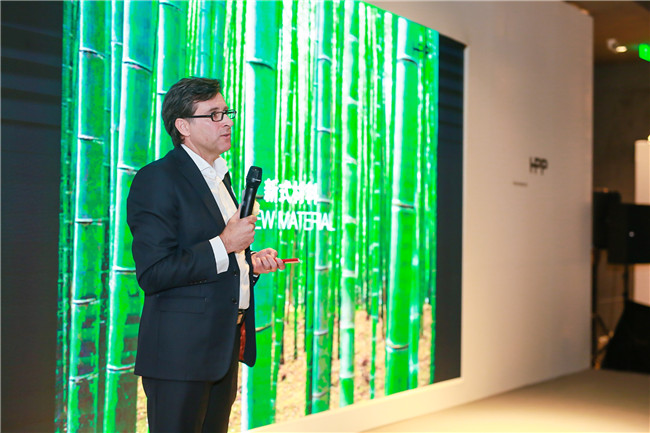
▲ HPP合伙人Jens Kump发表演讲
▲ Jens Kump (HPP Partner)
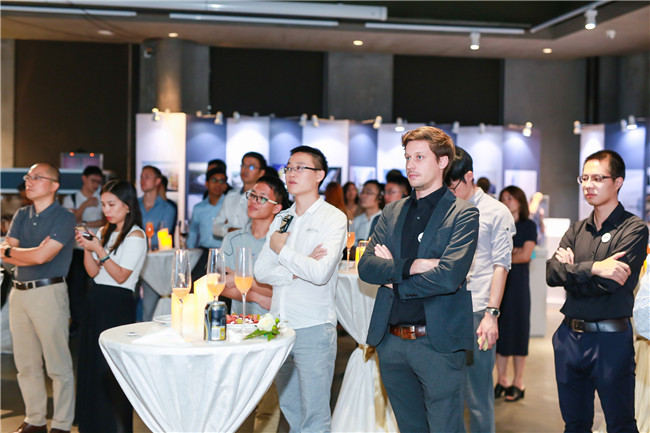
▲ 现场观众认真聆听
▲ The audience was listening carefully
Jens Kump提出“学习超市”的新理念并应用在西交利物浦大学太仓校区中,整个学校采用开放性、个性化、多元化式空间营造,为学生、企业和社会创建一个集聚、整合和共享优质教育资源的开放环境,培育一个充满活力的复合型学习社区。
Jens Kump proposed the concept of “Learning Mall” in XJTLU Taicang Campus, and illustrated how the concept can be used in design to create an open environment for students, enterprises and society to integrate and share high-quality educational resources in XJTLU.
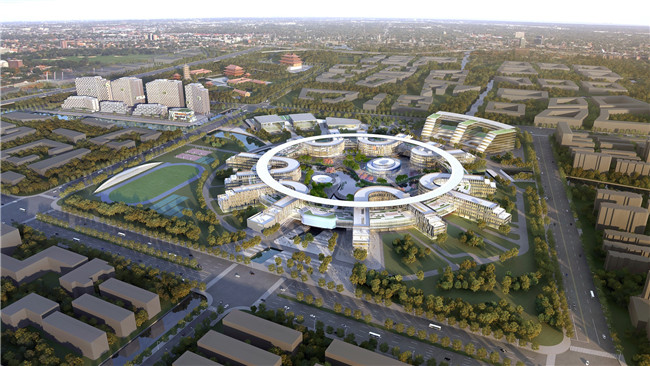
▲ 西交利物浦大学太仓校区中提出“学习超市”理念
▲ The concept of “Learning mall” in XJTLU
在深圳北站汇德大厦的设计中为了增强城市的可辨识度和归属感,整体建筑以优雅的阶梯状呈现出垂直城市的概念,同时利用塔楼高度和不同角度的旋转切角,形成多个三角形室内空中花园,使其在不同高度和朝向上提升城市空间质量,让整个形象更加符合城市精神。
In the design of Shenzhen North Station Huide Tower, in order to enhance the city’s identity and sense of belonging, the whole building presents the concept of vertical city in an elegant stepped geometry. Moreover, the height of the tower and the tower gradually rotate from bottom to top by means of stepped terraces forming a number of triangular indoor gardens, so as to improve the quality of urban space at different heights and upwards while acting as a beacon within in the maze-like city to guide people.
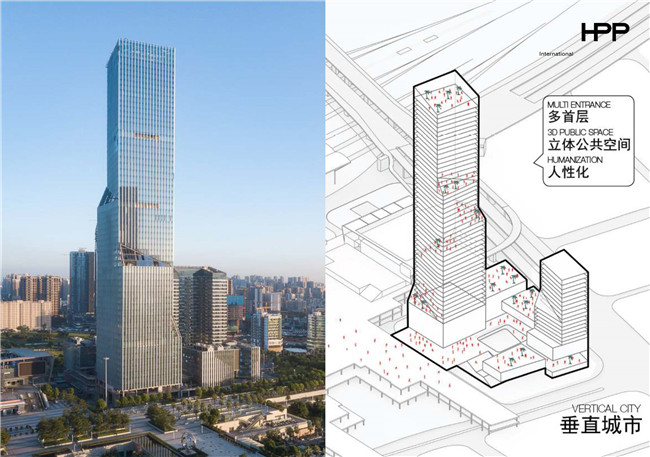
▲“垂直城市”概念在深圳北站汇德大厦中的应用
▲The concept of “vertical city“ in Shenzhen North Station Huide Tower
圆桌对话
“传承”、“创新”、“标识”、“细节”
Panel Discussion
“Heritage” “Innovation” “Identity” “Detail”
讨论以杜鹏博士对深圳的印象开始,他认为深圳如今发展非常迅速,超高层建筑的数量已经位列全国前几,但从城市设计角度看,深圳因缺乏人性化尺度关怀而不够友好。杨旭先生表示深圳是一座非常开放、透明和包容的城市,经过20多年的发展,如今也在逐渐形成城市自身的特色。作为建筑教育从业者的齐奕博士则谈到深圳的高等教育更注重与本土化特色的结合。
The discussion began with Dr. Du Peng's impression of Shenzhen. He believed that Shenzhen is developing rapidly now and ranked top in China for the number of super high-rise buildings. However, from the perspective of urban design, he thought Shenzhen is not good enough for the design concern in human scale. Next, Mr. Yang Xu mentioned that Shenzhen is a very open, transparent and generous city. After more than 20-year development, Shenzhen is gradually shaping the city's characteristics itself. Final, as an architectural educationalist, Dr. QI YI talked about the combination of higher education in Shenzhen with localization.
谈及建筑设计价值观的关键词:“传承”、“创新”、“标识”、“细节”,四位嘉宾与观众一同探讨了心目中对建筑设计价值的解读。Werner Sübai谈到这四点在设计中都尤为关键,但如果没有合适的时间和转换能力,这四种价值观都将很难持续,他由此提出第五个关键词 ——“转换“,这是一个有意义且必要的过程。建筑物需要随着市场的需求、用途和周边环境的不同而改变,从而反映出其额外价值。杨旭和齐奕博士同时提出了人性关怀,希望未来的建筑更关注使用者的感受。
According to the keywords of Values in architecture: Heritage, Innovation, Identity and Detail, our four guests explored the understanding of Values in architecture together with the audience. Mr. Werner Sübai discussed these four keywords are especially important in design, but these four values are difficult to achieve if there is no suitable time and converting ability. As a result, he proposed the fifth keyword, Convertibility. Convertibility is the dynamic adaption of buildings to change requirements, uses and circumstances as a meaningful or necessary process. Convertibility reflects an additional, use and market related, value. Regarding to time and transformation. At the same time, Mr. Yang Xu and Dr. Qi Yi mentioned the concerns of humanity and hoped architects could focus on user's experiences more in the future.
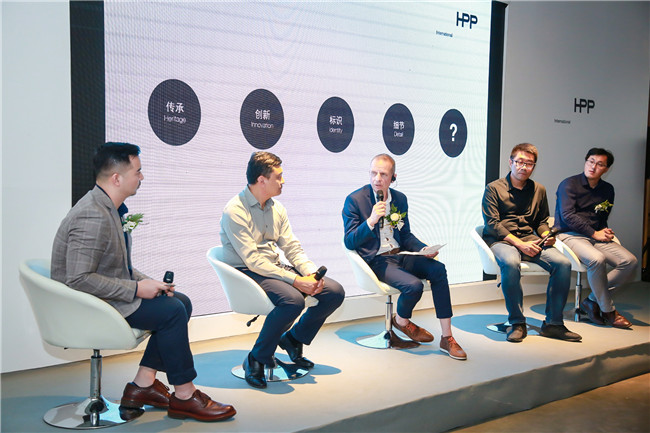
▲ 从左至右为HPP联合合伙人甘远哲、CTBUH副理事长及中国区总监杜鹏博士、HPP高级合伙人Werner Sübai、深圳市建筑设计研究总院副院长杨旭、深圳大学建筑与城市规划学院副院长齐奕博士
▲ From left to right: Gan Yuanzhe (HPP associate partner), Dr. Du Peng (CTBUH Vice-president / Director of Greater China), Werner Sübai (HPP Senior Partner), Yang Xu (Vice President of Shenzhen Architectural Design Institute), Dr. Qi Yi (Vice Dean of College of Architecture and Urban Planning, Shenzhen University)
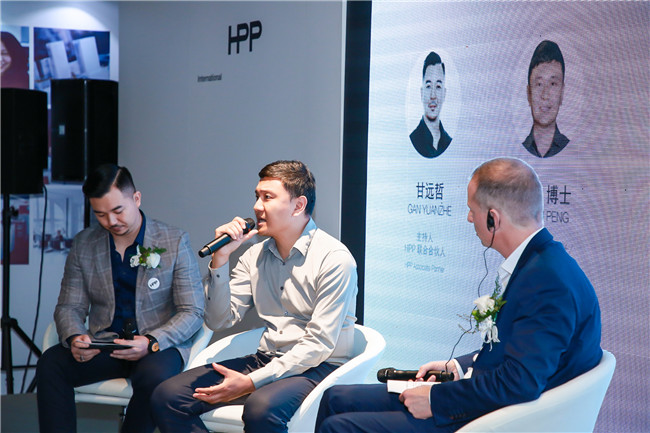
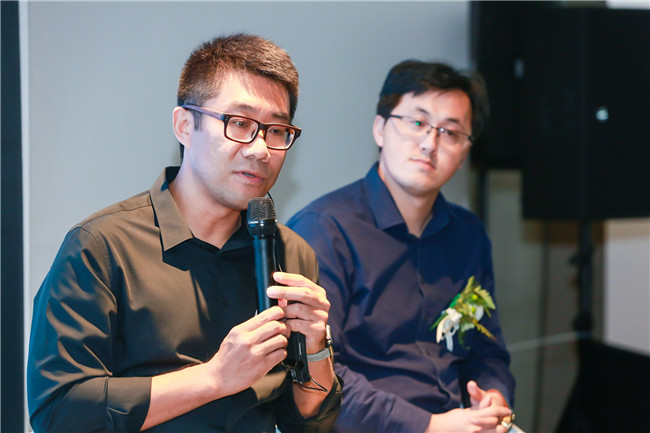
▲ 四位嘉宾与观众分享各自对四个关键词的解读
▲Four guests share their viewpoints of four keywords
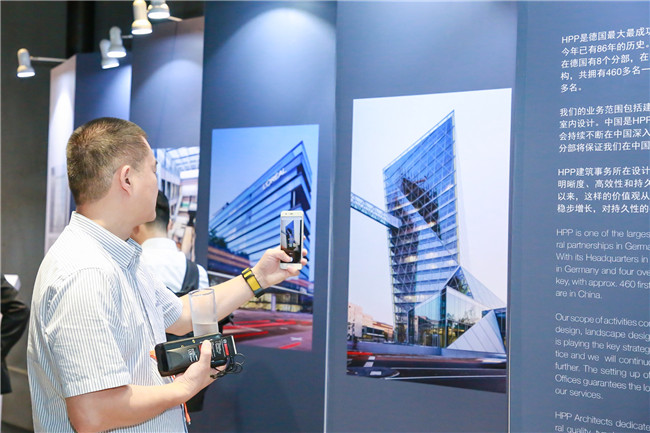
▲ 现场观众互动
▲ Interaction with the audience
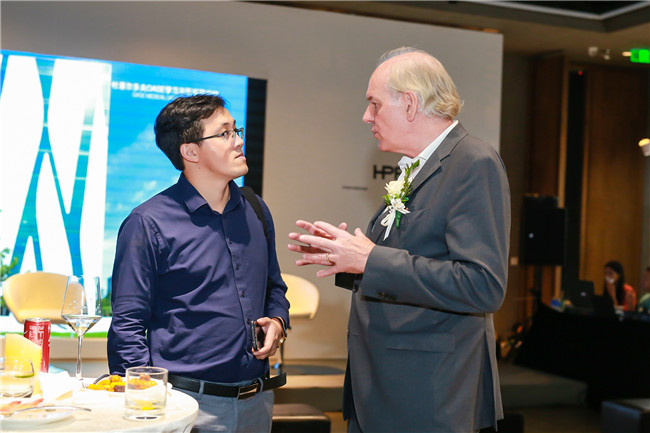
现场交流花絮
Highlights of The Ceremony
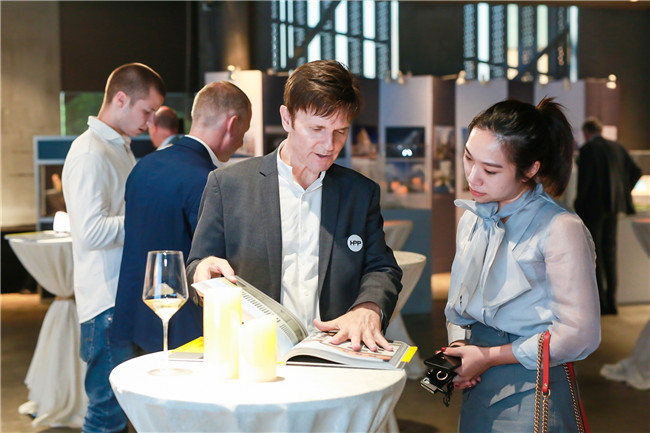
▲ 现场交流气氛热烈
▲ The ceremony was in a lively atmosphere
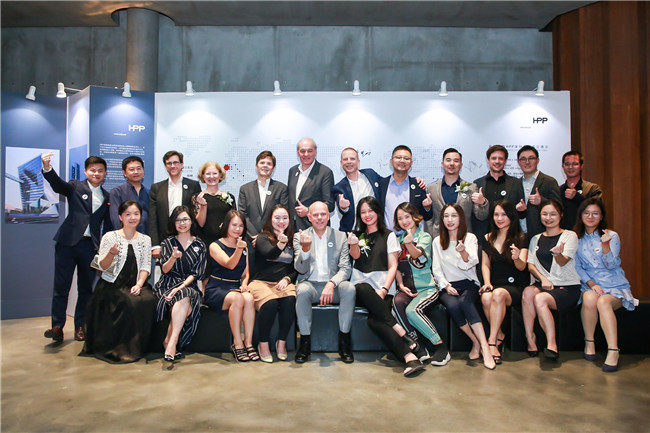
▲Photo of Hpper
▲Photo of HPPer
中国的未来发展将被放在HPP国际业务的重要战略位置,上海、北京及深圳办公室的设立将是HPP在中国提供稳定的高品质服务的有力保证。
China’s future development will be put into the major place of HPP’s international strategy. The setting up of shanghai, Beijing and Shenzhen offices is the guarantee of the stable, high-quality services that we provide.
